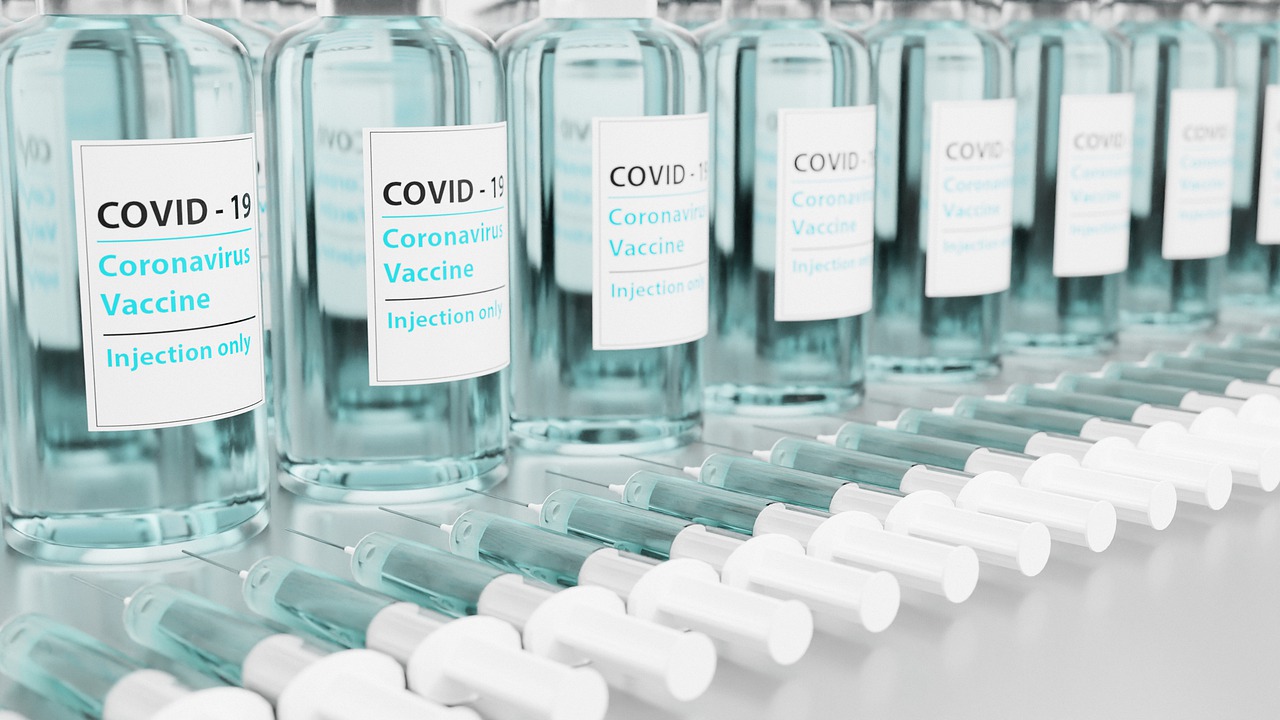Developing countries want patent protections to be temporarily removed for COVID-19 vaccines and drugs. But this will destroy the incentives that made these vaccines possible in the first place. Pharma companies and global institutions have shown that there are other ways to make medicines affordable.
In March 2020, as the pandemic began its slow chokehold on the lives of people and economies around the world, Doctors Without Borders issued a plea to the pharma industry to refrain from profiteering off the pandemic. Their concern was simple: A patent on the drugs or vaccines would create another barrier between the developed and developing worlds.
Almost a year later, with the cure on the horizon, numerous nations have echoed the same plea. India and South Africa have moved a joint proposal that seeks a temporary waiver from the implementation of a few sections of the multilateral Trade-Related Aspects of Intellectual Property Rights (TRIPs) Agreement.
The joint proposal was moved before the Council for TRIPs, for recommendation to the World Trade Organization’s General Council. The proposal requested the WTO to exempt “drugs, vaccines, diagnostics, personal protection equipment, and other medical technologies throughout the pandemic” from intellectual property rights (IPR), patents, trade secrets and copyrights. The reason cited by India and South Africa was that the patent protections would stand in the way of inoculating the large populations in the developing economies at an affordable rate.
The plea stated that the waiver should be in force till a majority of the earth’s population has developed an immunity against the virus through widespread inoculation. It argued that IPR and certain provisions in the TRIPs agreement are resulting in critical delays to the manufacture of drugs and vaccines. This proposal, if granted, would alter not only the access to medicines in low-income countries but will also skewer the very foundations of pharmaceutical innovation.
The Ethical Cost of Innovation?
It is no secret that the pharma industry is responsible for both ground-breaking innovation and unethically excessive profit-making at the cost of desperation and human suffering. In the recent past, 39 pharmaceutical companies sued the South African government for buying brand-name anti-AIDS drugs at the lowest rates available in the middle of an epidemic. The suit was dropped in the face of mounting public pressure. But it brought the indiscriminate profit motive of big pharma to light.
It is important to note that the pandemic presents an unprecedented situation. COVID-19 has effectively stalled the world and driven its most vulnerable members to the brink. Speed as well as equity is of utmost priority. The countries asking for the waiver have argued that existing provisions hinder developing countries from harnessing their manufacturing capacities to quickly copy the vaccines and distribute them to poor countries.
Moreover, wealthy counties have already secured vaccines many times their population, leaving the poorer economies to struggle. This race surrounding vaccine nationalism can also be blamed for needlessly prolonging the pandemic. Ellen ‘t Hoen, the director of Medicines Law & Policy, observed that all production facilities should be exploited. “We have to recognise that this virus knows no boundaries, it travels around the globe and the response to it should also be global. It should be based on international solidarity,” she said.
The discussion on the proposed waiver came to a standstill, as the developed world collectively thwarted the idea. They claimed that resources, much more valuable than plain profit, were at risk if the proposal is implemented. Fast and efficient innovation relies on patent protection and profits. Without these provisions, pharma companies simply do not have the incentive to produce vaccines and fund research swiftly.
There can be no doubt that swift and equitable distribution of vaccines is important. However, the question still remains on whether an IPR waiver is the magical answer. Nations opposing the waiver have contended that the argument of enhanced production does not hold much water, since the vaccine can still be easily produced with the information that is already made public by the WHO. The patented information would not miraculously increase short-term production.
How to Increase Access Without Breaking Patents
During COVID-19, pharma companies, governments and multilateral institutions have come together to show that there are multiple ways to increase access to vaccines during an emergency, without removing IPR provisions that are vital for incentivising innovation. There has recently been unprecedented cooperation between developing countries and pharmaceutical companies, in order to make COVID-19 vaccines more easily available to the poor.
AstraZeneca, GlaxoSmithKline and Johnson & Johnson, among others, have promised to offer vaccines on a no-profit basis, while some others have actively considered different prices for different countries. AstraZeneca, Novavax, Johnson & Johnson and Sanofi have also agreed to produce 3 billion vaccine doses for low and middle-income countries. The Serum Institute of India alone is set to manufacture two-thirds of the target amount.
There are also multiple examples of pharma companies collaborating with local producers in developing countries to make their vaccines widely available. Johnson & Johnson agreed on a technology transfer partnership with South Africa’s Aspen Pharmacare, and AstraZeneca entered into a licensing agreement with the Serum Institute of India.
Additionally, the WHO-backed COVAX program has been set up precisely to prevent a vaccine monopoly and to ensure equitable distribution. COVAX is gearing up to distribute 2 billion doses by the end of 2021. The WHO has also established the COVID-19 Technology Access Pool (C-TAP), a platform through which research results and intellectual property regarding the treatment and cure of COVID-19 is shared.
The pandemic has shaken up many existing structures and systems and – in more ways than one – increased the gap between economic classes. Yet, it is undeniable that without adequate compensation, there is no scope for improvement and innovation. Medical innovation is no different. If patents are waived, the very system that produced the vaccines in record time will be broken down.
Ahana Bag is a penultimate year law student at the Department of Law, University of Calcutta. She is a part of Students of Liberty’s first cohort of Fellowship for Freedom in India.


